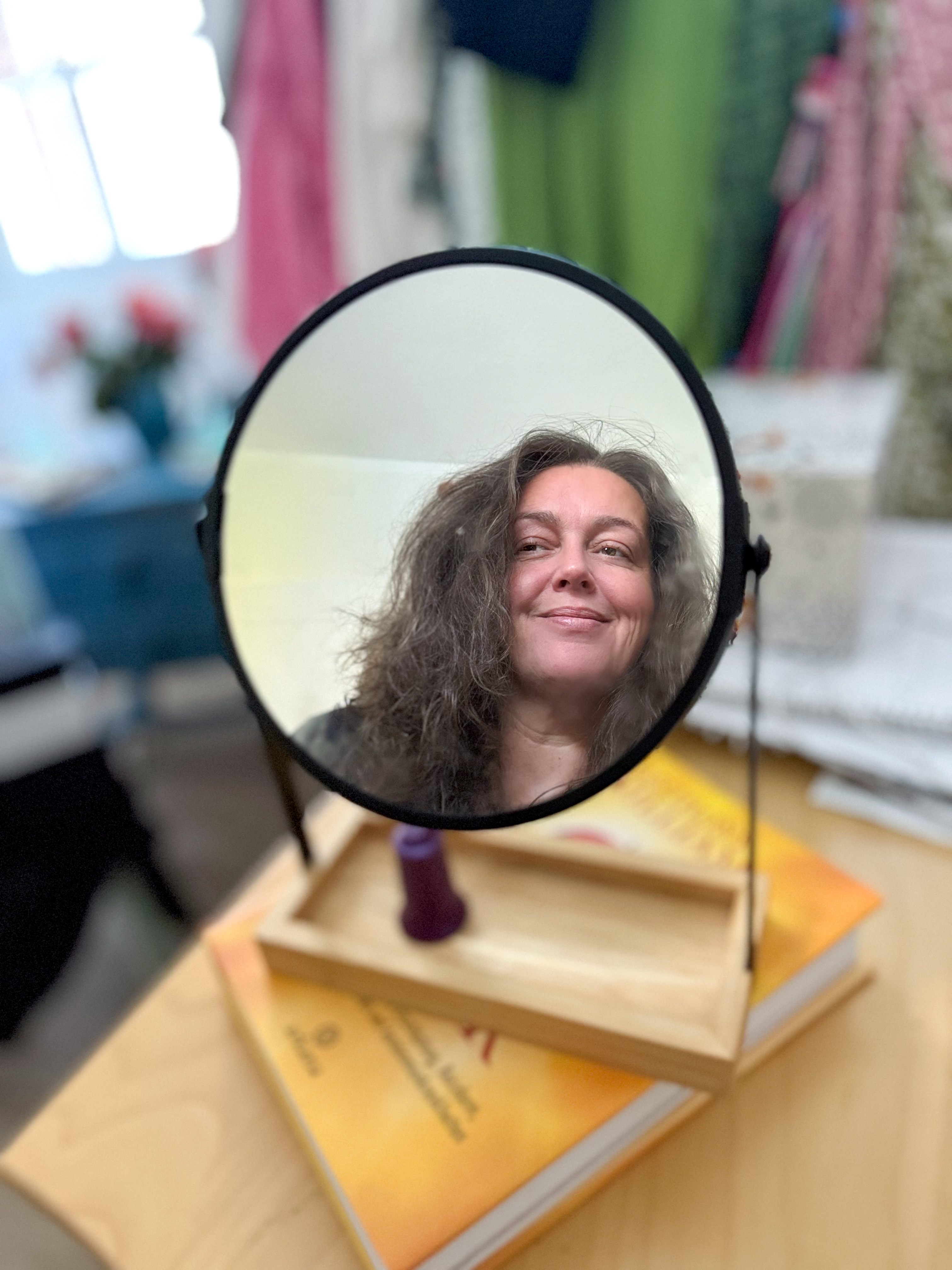Mirrors are more than just glass and reflection. They hold power—power to reveal, to challenge, and to transform. Whether we avoid them, obsess over them, or simply glance at them as part of our daily routine, mirrors evoke strong emotions. But what if we could change the way we see ourselves in the mirror? What if instead of judgment, we found self-acceptance?
What Do You See in the Mirror?
Have you ever truly looked at yourself in the mirror—not just to check your hair or makeup, but to really see yourself? When the door is closed, and it’s just you and your reflection, how do you feel?
Do you speak to yourself with kindness, or do you immediately focus on flaws? Do you feel connected to the person staring back at you, or do you avoid your own gaze?
Mirrors are powerful tools, and yet they can also be confronting. They bring us face to face with ourselves, with our thoughts, our emotions, and often, our self-judgment. In today’s world, we spend more time staring at screens than looking into the eyes of others—or even ourselves. The art of self-connection is fading, but mirror work offers a way to bring it back.
From Childhood Joy to Adult Critique
Think back to when you were a child. Do you remember how much fun mirrors used to be? Maybe you made silly faces, danced, or sang, feeling completely at home in your own skin. As children, mirrors reflected joy and curiosity—we didn’t use them to critique ourselves, but to explore who we were.
But something shifts as we grow older. Instead of seeing our individuality, we start to see imperfections. Instead of playfulness, we feel pressure. The mirror becomes a tool not for self-expression, but for self-judgment. We compare ourselves to beauty standards, social expectations, and unattainable ideals. The once joyful reflection turns into a harsh critic.
I know this feeling well. As I approached 50, I started avoiding mirrors altogether. I didn’t like what I saw—a tired, drained face staring back at me, missing the energy and vibrancy it once had. My reflection no longer felt like me. But deep down, I knew I had to make a change. I needed to reconnect with myself, to rediscover confidence and self-love.
That’s when Face Yoga entered my life—and with it, the transformative practice of mirror work.
How Mirror Work Changed My Reflection—And My Mindset
Face Yoga brought me back to my reflection, not with self-criticism, but with self-compassion. It wasn’t just about toning muscles or smoothing lines; it was about shifting my perspective. Through daily mirror work, I learned to look at myself with kindness instead of judgment. I started to see beyond the surface—beyond the wrinkles, beyond the tired eyes—to the strong, beautiful person I am.
Mirror work is more than just a practice; it’s a journey. It teaches us to accept, embrace, and celebrate ourselves exactly as we are. And when we change how we see ourselves, it changes how we show up in the world. If you’re curious about how mirror work can help you reconnect with yourself, I’ve put together a free guide to get you started. Check it out here and begin your own journey toward self-acceptance, confidence, and a reflection you love.


Leave a Reply